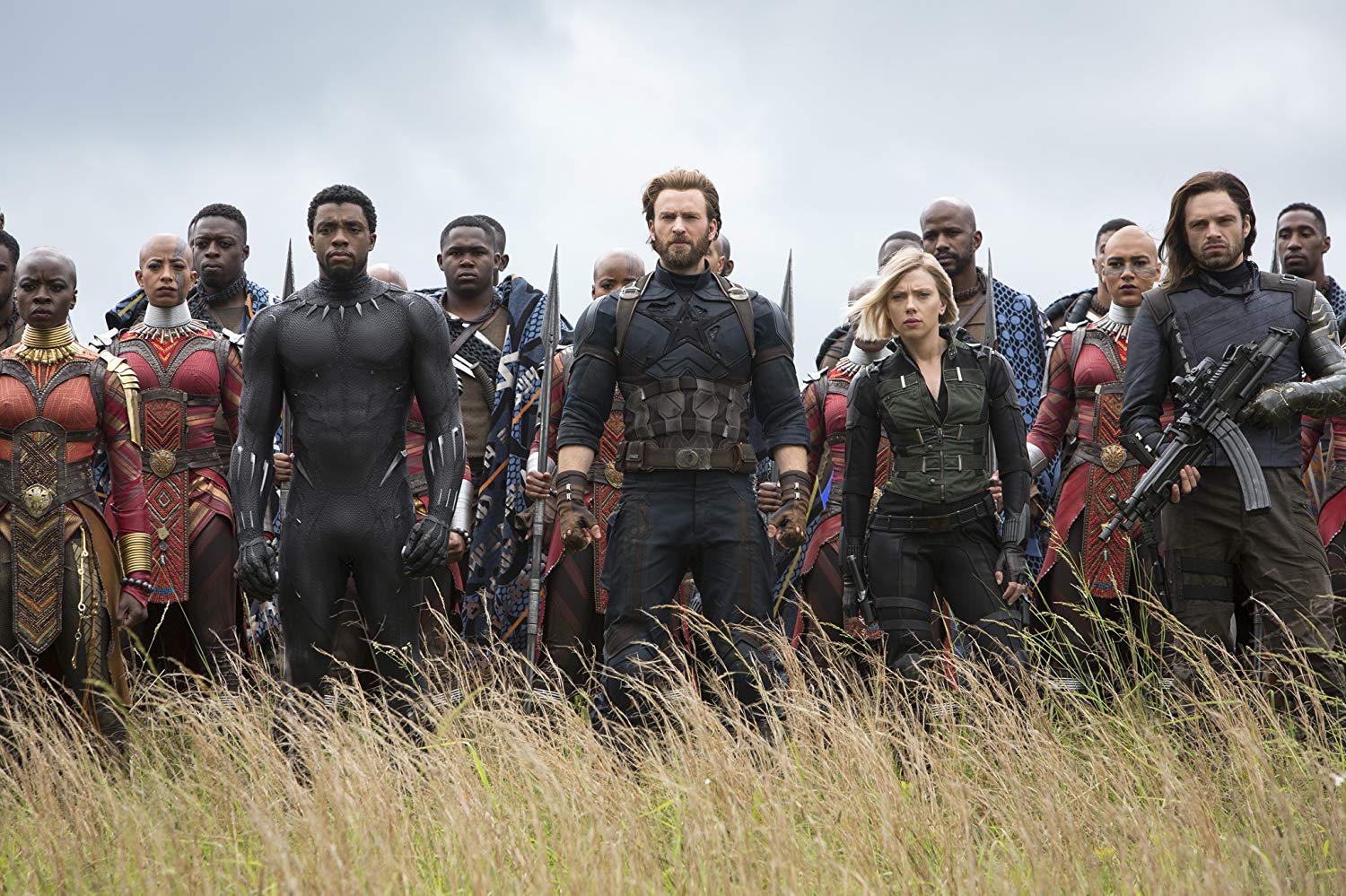By Ashley Yonga, Deputy Online Film & TV Editor, 2017-18
Ahead of the releases of the final season of Game of Thrones (2011-19) and Avengers: Endgame (2019), it’s important to recognise the amount of investment fans have in the many characters of the franchises and how audience emotions hang on the fate of them all.
SPOILER ALERT: Game of Thrones S01-07 and Marvel films pre-Avengers: Endgame
YouTube / GameofThrones
The first Marvel Cinematic Universe (MCU) film I saw was the first Avengers (2012), and it was after then I went back and became enthralled with the characters of this expansive universe. There weren’t that many with their own films at the time, just Iron Man, Thor, Captain America and the Hulk, but I was obsessed. I loved how each film was both separate and entangled, that you could watch just one character’s films but also watch them fit within a satisfying, larger web of stories. I loved Iron Man but was enticed by Loki’s arc in the Thor films, and Groot made me laugh just as much as Bucky’s distress devastated me.
I felt the same thing when I watched Game of Thrones for the third time with my housemate recently. The two previous watches had given me an overview of the complex storylines, so I spent this charming third time focusing on the characters, ALL OF THEM both main and supporting, wishing for their successes and upset by their failures.
Season 7 saw many of our beloved characters’ plots become intertwined. Suddenly these separate people with separate paths were walking together and influencing each other. I couldn’t have been more excited to witness it. It was reminiscent of Avengers: Infinity War (2018) and interestingly, I found myself rooting more for the peripheral characters than the leads.
YouTube / Marvel Entertainment
With the end of both Avengers: Endgame (2019) and Game of Thrones Season 8 rapidly approaching, one cannot help but consider the power of the ensemble story, the sheer amount of time and effort we’ve all invested over the past ten years in both these cultural phenomena and what it means to enter their final chapters. There’s something so wonderful about a piece of work that revolves around more than just two or four people. It takes a lot to make an audience care not just about the core group but the supporting cast, sometimes even more than the main characters.
It’s possible that the remarkable writers of these works get you to invest in the peripheral characters because they can kill them off without delineating the central plot, but it still hits the audience quite hard. They become the emotional centre of the series without having to be the sole focus of it. People are going into Season 8 of Game of Thrones hoping that Ser Davos and Podrick make it out alive, even though this is a show notorious for killing its main characters, especially Ned Stark (Sean Bean) in only its ninth episode.

Photo courtesy of Marvel Studios
We’ve followed the main characters of the Avengers and Guardians of the Galaxy franchise for years, each one with their own host of supporting characters: Pepper Potts and War Machine in Iron Man, Bucky in Captain America, and Loki in Thor. Time was carefully taken to flesh out the supporting characters of these leads resulting in the audience having a greater stake in the ultimate finale, much like in Game of Thrones. It’s not just our six core Avengers we’re behind; we somewhat feel more protective about Shuri than Black Panther himself.
Maybe it’s because we see ourselves in the supporting characters of these stories, as the supportive friend or sibling. Maybe it feels too self-aggrandising to think we are the heroes of the tale. So, we rally behind the more relatable characters, the ones without the superpowers or dragons, the ones who may not have much but do the best with what they got. The audience sees themselves in the supporting cast and when a series takes the time to flesh out the stories of its main cast over multiple films and seasons then inevitably, we get to see more of their network and form a strong attachment to them. This is the beauty of the ensemble: you’re given your pick of characters to choose from.
Which #GameofThrones character are you most surprised is still alive heading into S8? Like, who did you think had no chance?
— Neil (@rejects) March 27, 2019
For me, it’s Podrick Payne. No disrespect to my guy. I’m so happy for him. But I was sure he was meat. pic.twitter.com/BiOcW8LFVv
It’s my favourite part of any series but it’s one of the hardest things for creators to achieve: carry the storylines of over 20 characters and make the audience care deeply about not just their individual stories but also how they interact with each other. Infinity War was a demonstration of just how gratifying it is to watch characters you’ve gotten to know over the last ten years come together and fight a common enemy and the final season of Game of Thrones is sure to bring similar triumphant feelings.
With both returning this month, I will wait with bated breath for the safety of all my favourite supporting characters (Groot, Bucky, Ser Davos, Pod, Brienne of Tarth and Ghost, the direwolf). We can all agree that at least half of them will not be making it out alive and that I will be left heartbroken yet somewhat grateful for the times, however brief, I got to share with all of them.
Game of Thrones Season 8 airs on Mondays, 2am and 9pm, on Sky Atlantic starting 15 April.
Avengers: Endgame is on general release from 25 April.
Featured Image courtesy of HBO
Are you excited for either or both of Avengers or Game of Thrones?
Facebook // Epigram Film & TV // Twitter









